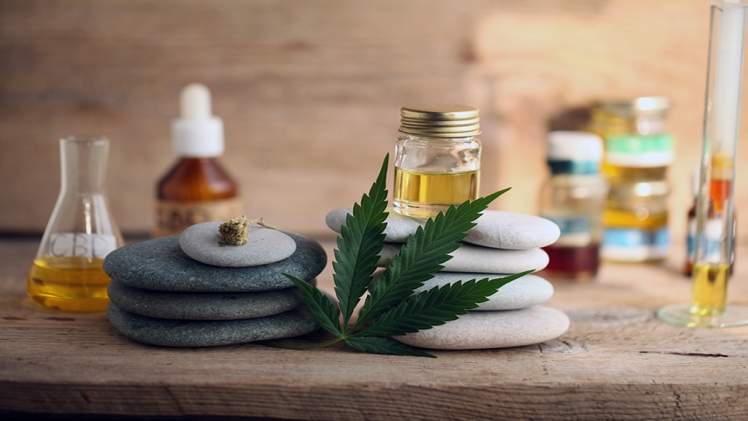CBD (Cannabidiol) is a cannabinoid compound found in cannabis and hemp. Unlike tetrahydrocannabinol (THC), CBD does not get you “high,” making it a potential solution for a variety of medical problems. Since it was first discovered in the early 1900s, CBD has been studied extensively for its potential medical uses, with promising results. In recent years, CBD oil infusions have become increasingly popular as a treatment for a variety of conditions and maladies. This article provides an overview of what CBD oil infusions are, their benefits, and the risks associated with them. It also includes tips on how to choose the best CBD oil infusion for your needs.
What is CBD?
CBD, or cannabidiol, is a cannabinoid found in cannabis and hemp. It’s non-psychoactive, meaning it won’t get you high. CBD has been shown to have anti-inflammatory and analgesic properties, making it great for treating a variety of conditions.
What are the Benefits of CBD Infusions?
CBD (cannabidiol) is a chemical compound found in hemp and cannabis plants. It has been shown to have medical benefits, including reducing anxiety, relieving pain, and helping with seizure control. CBD oil can be ingested as a supplement or used topically to treat a variety of conditions.
When taken as a supplement, CBD oil can help reduce anxiety, relieve pain, and improve sleep quality. Topical application can help with conditions such as arthritis, psoriasis, and eczema. Additionally, CBD oil may help improve moods and cognition in those with mental health issues.
How do you make a CBD infusion?
If you’re looking for a way to get high from CBD, it’s not going to happen with an infusion. Infusions are made by slowly adding CBD oil or extract to a liquid or other carrier, and they’re typically used to treat different medical conditions.
The most popular type of infusion is tincture, which is a liquid that includes CBD and other cannabinoids but doesn’t contain any THC. Tinctures are easy to take and can be stored in a dark place. You can also make a sublingual tincture, which is administered under the tongue.
When making an infusion, be sure to follow the instructions that come with your product. Some products require shaking while others require stirring. Be sure to read the label carefully before starting your infusion so you know how much CBD oil or extract to use and what kind of carrier you’re using.
Before you start your infusion, make sure you have all the supplies you need including a dropper, glass jars or tincture bottles, kitchen thermometer, coffee filter paper, and measuring spoons or cups.
What are the dosages for CBD infusions?
There is no one-size-fits-all answer to this question, as the dosage of CBD oil that is right for you will depend on several factors, including your weight, health history, and age. However, here are some general guidelines to help you find the right dose.
If you are using CBD oil to treat a chronic condition, start by taking a small amount each day and gradually increase your dose until you reach the recommended dosage. For example, if you are taking CBD oil to treat anxiety, start by taking only 0.5 or 1 ml each day and gradually increase your dose over time until you reach the recommended dosage of 3 or 5 ml per day.
If you are using CBD oil for recreational purposes (i.e., for pleasure rather than treatment), start by taking less than the recommended dosage and gradually increase your dose over time until you reach the recommended dosage. For example, if you are using CBD oil for recreational purposes and want to take 1 ml per day, start by taking 0.25 ml each day and gradually increase your dose over time until you reach 1 ml per day.
What are the side effects of CBD infusions?
There are a few potential side effects of CBD infusions, though they’re generally mild and not particularly common. In general, infusions of CBD may cause some tiredness or drowsiness, but these side effects are typically gone within an hour or two. Some people also experience minor changes in mood or energy levels, but these effects usually dissipate after a few hours. There is also the potential for interactions with other medications—so it’s important to speak with your doctor about any supplements you’re considering taking.
Conclusion
If you are looking for a natural way to cope with anxiety, pain, or other conditions, CBD infusions might be the answer for you. Not only do CBD infusions offer relief from these symptoms, but they also have minimal side effects. In this article, we will discuss the different types of infusions CBD and give you a rundown of what each one entails. We hope that our information has helped you make an informed decision about whether or not to try out CBD infusion therapy for yourself.

